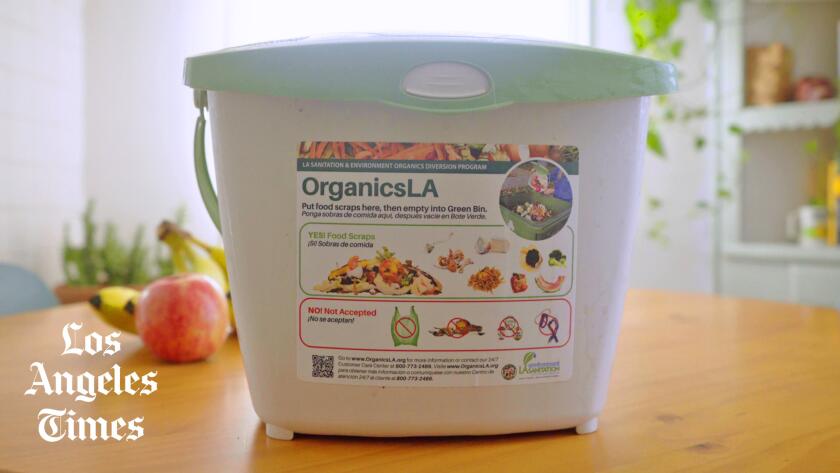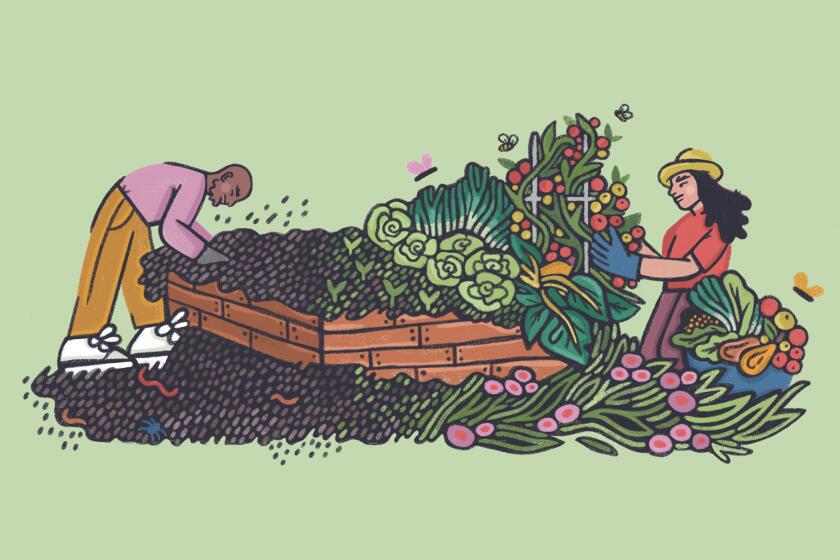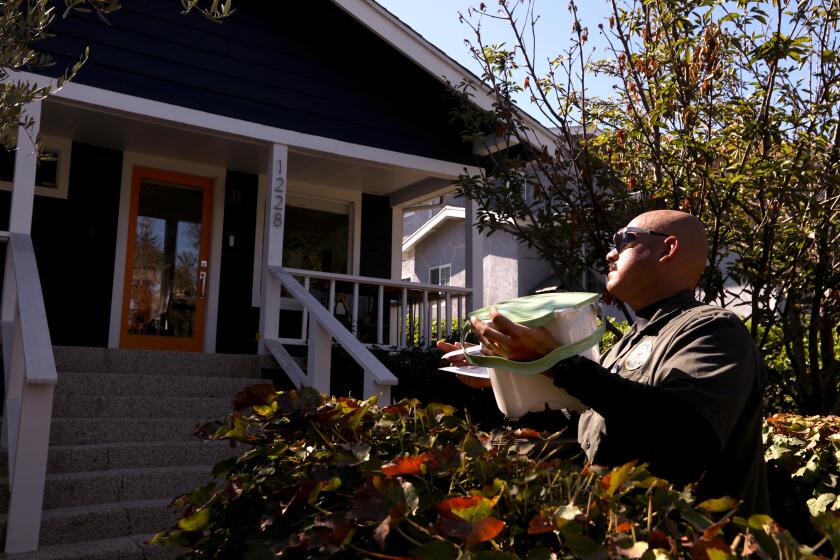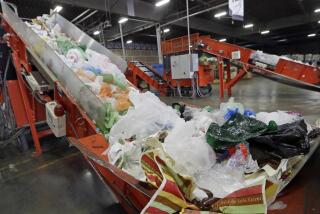L.A. now picks up your compostable food scraps. Here’s what you have to do
The wait is finally over for city of Los Angeles residents wanting to comply with California’s food waste mandate.
The Bureau of Sanitation announced Jan. 16 that residents citywide should dispose of their banana peels (even the moldy parts), eggshells and other compostable waste in their green bins.
This announcement comes a year after California enacted Senate Bill 1383, which required people to separate food scraps from the rest of their trash.
The city of Los Angeles was ahead of the curve when it rolled out its composting program in 2019. However, the number of households in the program was slow to expand. The holdup was infrastructure — building new facilities or upgrading existing facilities to accommodate anaerobic digestion, according to Gerry Villalobos, environmental specialist for the Bureau of Sanitation.
But now, residents can freely toss their coffee grounds, non-nylon tea bags or chicken bones in the green bin.
Here’s a reminder of what can go in the green bin and how to keep that waste in your kitchen before tossing it out.
Californians are required to recycle food scraps and leftovers. So: What is composting? What can you — and can’t you — compost? We’re here to help.
What to toss in the green bin
These are the foods and products that can go in the green bin:
- Fruits and vegetables
- Dairy and eggshells
- Bread, cereal, grains, rice, pasta and beans
- Meat, bone, fish, and shells
- Coffee grounds and filters
- Food-soiled paper products (including greasy pizza boxes)
Just in case you’re wondering what can’t go in the green bin:
- Plastics
- Products labeled “biodegradable” or “compostable”
- Glass
- Produce stickers
- Rubber bands
- Twisty ties
On a city holiday, Los Angeles announced that the long-awaited curbside composting program was available citywide. Did anyone notice?
Collecting food scraps
You can get a free kitchen waste pail to store your food scraps in from the city starting today. Schedule an appointment online with the Sanitation Bureau, and find the nearest pickup site.
But you don’t have to have to get a kitchen pail: A plastic container with a lid will work.
To keep odors at bay, Villalobos said, you can layer the food with sawdust or line it with used paper towels, sprinkle baking soda in the pail and store it in the fridge or freezer.
An extra tip is to empty your kitchen container or pail and wash it regularly — the pails are dishwasher friendly.
The composting program and the pails are not available to customers of RecycLA (that includes businesses and large apartment complexes). If your property manager requests it through the RecycLA provider, a pail may be available for pickup.
About The Times Utility Journalism Team
This article is from The Times’ Utility Journalism Team. Our mission is to be essential to the lives of Southern Californians by publishing information that solves problems, answers questions and helps with decision making. We serve audiences in and around Los Angeles — including current Times subscribers and diverse communities that haven’t historically had their needs met by our coverage.
How can we be useful to you and your community? Email utility (at) latimes.com or one of our journalists: Jon Healey, Ada Tseng, Jessica Roy and Karen Garcia.










